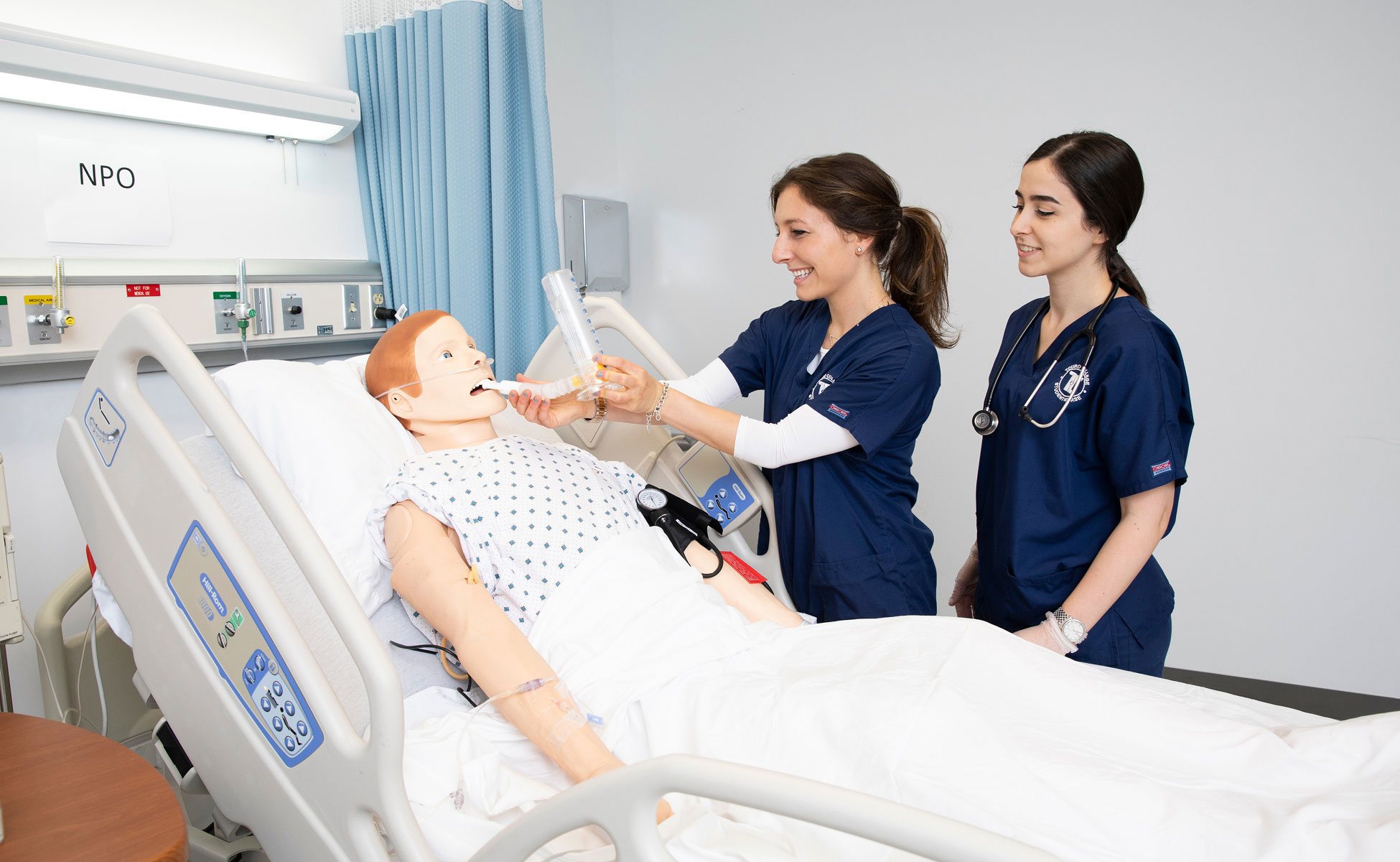The Doctor of Nursing Practice program at Touro University School of Health Sciences prepares clinical leaders to influence healthcare outcomes, critically analyze the most current nursing research, and turn that research into action implementing strong clinical evidence as best clinical practice. As a DNP you have the opportunity to improve quality health care, patient outcomes, and health care systems, and influence and implement health policy to advance population health.
Our DNP program has a Family Nurse Practitioner focus. A Family Nurse Practitioner (FNP) is an advanced practice registered nurse (APRN) who is trained in the care of patients of all ages, from infants through adulthood, including seniors.
The DNP program is in-person on our Brooklyn campus and cohort-based. In addition to didactic classes, you’ll have various advanced practice clinical placements & preceptorships to put into action what you learn. Your capstone project is an opportunity to research the particular clinical area that interests you. The faculty of the Department of Nursing are here to collaborate and mentor, as they teach. We are looking to develop a community of scholars, foster a commitment to lifelong learning, and help you cultivate your clinical area of expertise.
DNP with a FNP Focus
Our DNP curriculum gives you the knowledge you’ll need to sit for the Family Nurse Practitioner (FNP) certificate exam. As an FNP, you can provide comprehensive primary care to individuals and families across the lifespan, from pediatrics to geriatrics. You are equipped to diagnose and manage acute and chronic health conditions, prescribe medications, perform physical exams, order and interpret diagnostic tests, and develop treatment plans.
A DNP degree with an FNP focus enhances the opportunity and impact you’ll have in and out of the healthcare space. As part of your DNP degree, you’ll receive advanced clinical training, and gain a deeper knowledge and expertise in patient care. This degree opens doors to leadership roles within healthcare organizations, allowing you to influence practice standards and policy decisions. You’ll also learn to advocate for and develop family health policies, teach and mentor future healthcare professionals, and lead quality improvement initiatives that drive excellence in patient care and operational efficiency.
What You'll Learn
The DNP is an advanced degree that prepares you for the highest level of nursing practice. The curriculum builds on your nursing foundations, encompassing both the scientific and business aspects of the nurse practitioner profession. You’ll span topics like biostatics and epidemiology as well as budgets and healthcare ethics with classes ranging from advanced genomics to transcultural health promotion & disease prevention.
Throughout the DNP program, you will
- develop the foundational, clinical, organizational, systems, and leadership skills necessary for transforming health care delivery,
- improve outcomes for selected vulnerable patients and populations,
- influence and implement healthcare policies to enhance and improve patient care strategies,
- lead healthcare teams and organizations, implementing evidence-based practices to improve clinical effectiveness,
- teach and mentor nursing students and other healthcare professionals,
- translate clinical research into practice to optimize patient care and outcomes, and
- write and fill prescriptions when needed in applicable U.S. states.
What Can I Do With My DNP?
With a Doctor of Nursing Practice (DNP) degree, you can pursue a wide range of advanced roles within the healthcare field. DNP graduates provide high-level clinical care, often serving as primary care providers or specialists in various settings. Beyond direct patient care, DNPs can assume leadership positions in healthcare organizations, influence policy and drive improvements in healthcare delivery systems, as well as teach in academic settings, and contribute to the education of future nurses and healthcare professionals.
Admission into the Program
You’ll need to be a registered nurse with a bachelor’s degree to start your DNP, and we’ve designed the program for the working professional.
We have an advanced standing option if you’re already a nurse practitioner with a master’s in nursing degree and your start date will depend on whether you have a bachelor’s or a master’s degree. Advanced standing students with an MSN may transfer up to a blanket 38 credits from their MSN to the DNP program.
Learn more about DNP admission requirements and how to apply.


